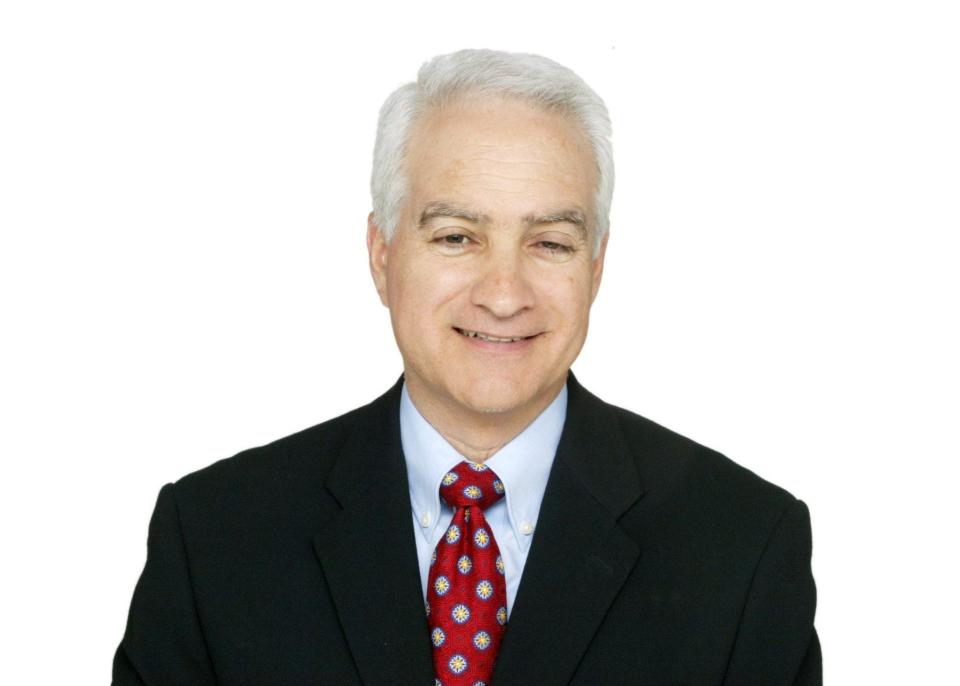Boca Raton holdout tests condo law regarding forced-sales to investor groups

I vaguely remembered speaking with Howard Fellman.
In my defense, it was 28 years and many columns ago. At the time, Fellman was a 28-year-old Boca Raton man refusing to be bought out of his condo.
He had paid $65,000 for a three-bedroom, two-bath condo on the northeast corner of Palmetto Park and Powerline roads, directly across the street from his computer business.
More Frank Cerabino: New law renews power of police to ticket Florida drivers for "rhythmic bass" sound from stereo
In case you missed it: Pence missed chance to be heroic in West Palm weeks before Jan. 6 rally | Frank Cerabino
And: For a healthy, safe Florida, ban kids at gun shows — not drag shows | Frank Cerabino
The garden-apartment condo complex was called Mission Viejo in 1994. And 175 of the 176 units there had been snapped up by a Michigan investor. Fellman was the one condo owner who refused to sell.
“He’s not offering me enough to buy a comparable one in the area,” Fellman told me at the time. “Everything else is either smaller or more expensive. And nothing is as close to work.”
Condo holdout hangs tough
The developer wanted to dissolve the condo association so he could run the place as a rental community without having to abide by the lengthy list of condo regulations.
And Fellman stood in the way, legally armed with the founding documents of the association that required 100 percent of the condo owners to consent to a dissolution of the property’s condominium designation.
Negotiations started out cordially. The developer said he offered Fellman $100,000 cash to sell, and Fellman turned him down.
When I wrote about it, the cordial phase had ended: The developer had found other ways to pressure Fellman into considering a sale.
The developer made himself head of the condo board, raised maintenance fees by 70 percent and levied a $10,000 special assessment against unit owners — which was just him and Fellman.
All to get Fellman out. But it didn’t work. And it didn’t work when the developer contacted Fellman’s mortgage holder, and bought the $40,000 mortgage on Fellman’s unit, then sent him mortgage payment coupons the day before their due date and prohibited pre-payment of monthly payments.
“I guess he thought I would fold my cards,” Fellman told me at the time.
Instead, Fellman paid the extra fees, the assessment and didn’t miss his mortgage payments.
That’s when I talked to Fellman last. But Monday, we talked again.

Although it had been nearly 30 years, some things hadn’t changed.
"This has gone on now for half my life," Fellman said.
He still owns that same unit, and he’s still the only holdout in what is now called Crystal Palms.
That Michigan developer is long gone, having sold the condo complex to the Scully Company, a property development, construction and management company that operates apartment complexes mostly in Pennsylvania, New Jersey, and Florida.
Fellman now has a renter in his unit. It’s the only one not controlled by the property development company that owns the rest of the units at Crystal Palms.
“During most of their tenure, we’ve been at relative peace,” Fellman said. “They rent out their apartments. I rent out mine.
“I leave them alone, and they leave me alone.”
Trouble emerges with new owners
Crystal Palms advertises itself to renters as “the best in luxury apartment living.”
“Beautiful Crystal Palms offers a lighted tennis court, basketball court, heated swimming pool, car wash, Fitness Center an easy access to everything in warm, sunny Boca Raton, Florida,” it says.
Three-bedroom units, like the one Fellman owns, rent for as much as $5,400 per month.
Fellman’s years of laissez faire co-existence are being challenged again, and the condo law that once protected him many years ago has changed in ways that make it tougher for holdouts.
In 2007, Florida lawmakers changed condominium law to say that only 80 percent approval, not 100 percent, from unit owners was enough to trigger a dissolution of a condo association.
The rationale was that this would facilitate making timely repairs to hurricane-damaged buildings or help rescue dilapidated condos hurt by downturns in the real estate market.
But it also lured investors to buy enough units in condominiums to control the board, and then dissolve the condo and force the remaining owners to sell at a value determined by an appraiser selected by the investor-run board.
In some cases, owners were being forced to sell below their purchase price, leaving some people homeless in a community they could no longer afford.
In 2015, the Florida Legislature amended the law to try to fix this.
The current Florida law says the holdout owners would have to be offered a fair-market price or their purchase price, whichever price was higher.
“This legislation will ensure that bulk buyers are not able to artificially drive down property values and then fail to compensate condo owners for the purchase of their units,” then-Florida Sen. Jack Latvala said in a press release announcing the changed law.
But Fellman said it’s still unfair that a private investor can use the law to coerce another owner to sell against his will.
“The condo laws were passed to establish procedures for unit owners to peacefully co-exist, not for an investor to confiscate private property. It’s as if Boardwalk is confiscating Park Place,” he said.
When Crystal Palms voted to make it easier to terminate its condominium designation last year, the vote was 175-1, just as it was the first time.
But instead of giving up by evicting his tenant, and agreeing to a sales price, Fellman hired a lawyer and took the association to court, claiming that the original 100 percent requirement in the condo documents couldn’t be altered.
He lost. In April, Palm Beach County Circuit Judge James Nutt ruled that the association’s actions were within the law.
“As a matter of law, anyone purchasing a condominium unit goes into the relationship with their ‘eyes wide open’ that their rights under the Declaration, including the percentage vote required for termination, could be altered by an amendment,” the judge wrote.
Fellman’s not done fighting, saying he will appeal, even though at this point, he’s hemorrhaging money through legal fees from the $200,000 evaluation the investor-group has put on his unit.
“This is costing me a bloody fortune,” he said. “There is no rainbow at the end of the road for me.
“But my case, as it stands now, will be used as a poster child for developers to confiscate property from condo unit owners.
“And it will happen to anybody who doesn’t have the deep pockets to defend themselves, and happen mostly to senior citizens.”
Frank Cerabino is a columnist at the Palm Beach Post, part of the USA TODAY Florida Network. You can reach him at fcerabino@gannett.com. Help support our journalism. Subscribe today.
This article originally appeared on Palm Beach Post: Florida condo law helps investors force reluctant unit owners to sell

